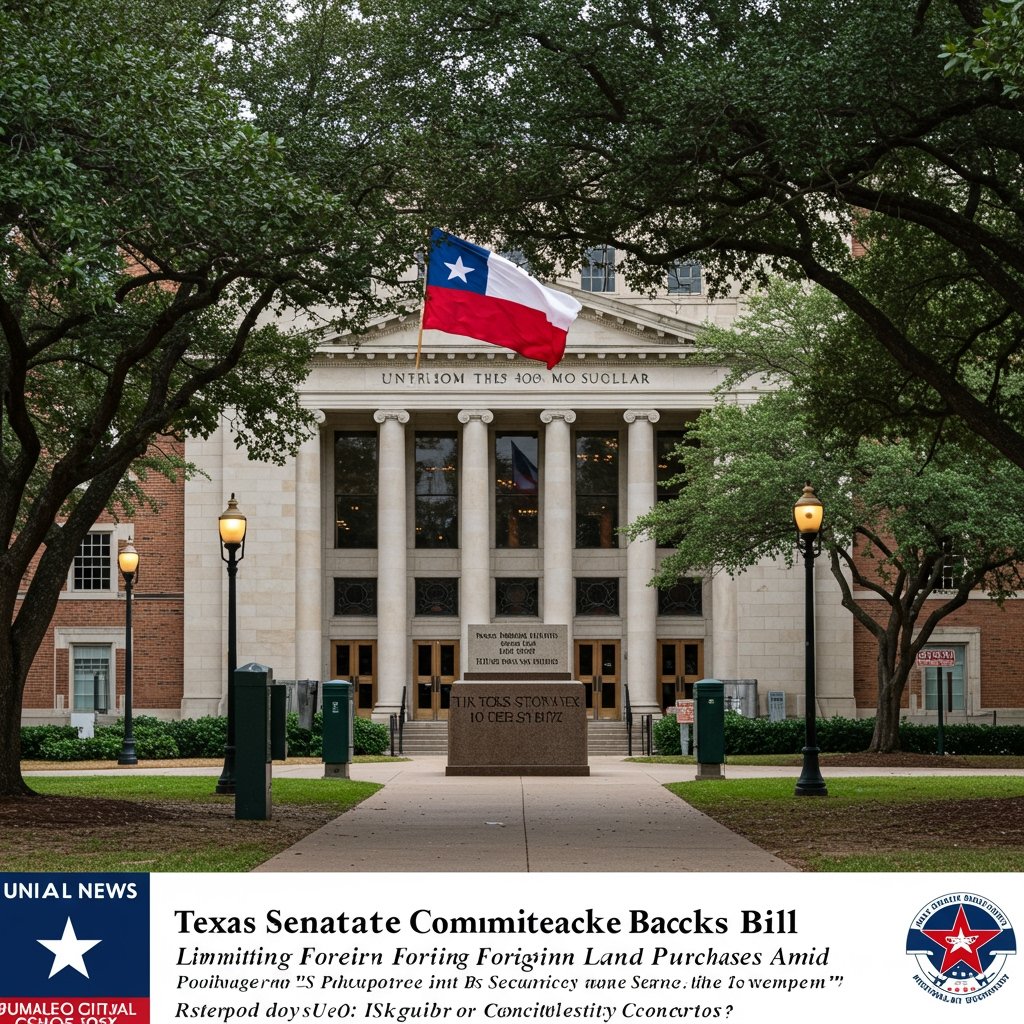Texas Legislature Considers Restricting Foreign Land Ownership
Legislation aimed at limiting land acquisitions by certain foreign entities in Texas is advancing through the state’s legislative process, sparking significant debate over national security, economic impact, and potential implications for international relations. On February 24, 2025, the Texas Senate State Affairs Committee held a pivotal hearing and subsequently approved Senate Bill 14 (SB 14), a measure proposing substantial restrictions on who can own land within the state’s borders.
Senate Bill 14: Targeting Adversary-Linked Land Ownership
The core objective of SB 14 is to prohibit individuals or entities linked to specific foreign governments, officially deemed as adversaries by the United States or potentially defined within the bill’s text, from purchasing land in Texas. The scope of the proposed prohibition is particularly focused, targeting acquisitions of agricultural land and property situated in proximity to critical state infrastructure. While the specific list of targeted governments or the precise definition of “critical state infrastructure” would be detailed within the final text of SB 14, the legislative intent is clearly directed at perceived national security threats posed by certain foreign powers acquiring sensitive assets or resources within Texas.
The bill’s proponents argue that restricting land ownership by entities tied to adversarial foreign governments is a necessary step to safeguard Texas’s vital resources and infrastructure from potential foreign influence, espionage, or control. Concerns are frequently raised regarding the strategic importance of agricultural land for food security and the critical nature of infrastructure such as military bases, power grids, ports, and communication hubs, all of which could be compromised or utilized against state or national interests if controlled by hostile foreign actors. Supporters maintain that SB 14 is a critical measure for bolstering both state and national security in an increasingly complex global environment.
Security vs. Economic and Social Concerns
The advancement of SB 14 has not been without considerable opposition and expressions of concern. Critics of the bill raise several significant points, primarily revolving around potential negative impacts on foreign investment within Texas. Foreign capital plays a role in various sectors of the Texas economy, including real estate and agriculture, and opponents fear that sweeping restrictions could deter legitimate and beneficial foreign investment, potentially hindering economic growth and development across the state.
Furthermore, substantial concerns have been voiced regarding the potential for the bill to result in discrimination against individuals or entities based on their national origin or perceived ties to certain countries, even if those individuals or entities have no connection to adversarial government activities. Critics argue that the bill could cast a wide net, unfairly impacting individuals who are lawful residents, immigrants, or dual citizens, and could strain diplomatic relationships. Opponents emphasize the importance of distinguishing between foreign governments and individuals or businesses who may hail from those countries but operate independently and contribute positively to the Texas economy and society. The debate highlights a tension between perceived security imperatives and the principles of open markets and non-discrimination.
The Legislative Path Forward
The approval of Senate Bill 14 by the Texas Senate State Affairs Committee on February 24, 2025, marks a significant milestone in its journey through the Texas Legislature. Committee approval signals that the bill is deemed ready for consideration by the full Texas Senate. The next phase will involve the bill being brought to the Senate floor for further debate among all senators. This stage allows for potential amendments, extensive discussion of the bill’s provisions and implications, and ultimately, a full vote by the Senate body. The outcome of this vote will determine if SB 14 progresses to the Texas House of Representatives for their consideration, or if it fails to pass the upper chamber.
As SB 14 moves forward, the debate surrounding its necessity, scope, and potential consequences is expected to intensify. The bill represents a notable legislative effort to address concerns about foreign influence and control over strategic Texas assets, balancing these concerns against the state’s historical openness to foreign investment and the potential for unintended negative consequences. The deliberations and final vote in the full Texas Senate will be closely watched by stakeholders on all sides of this complex issue.






